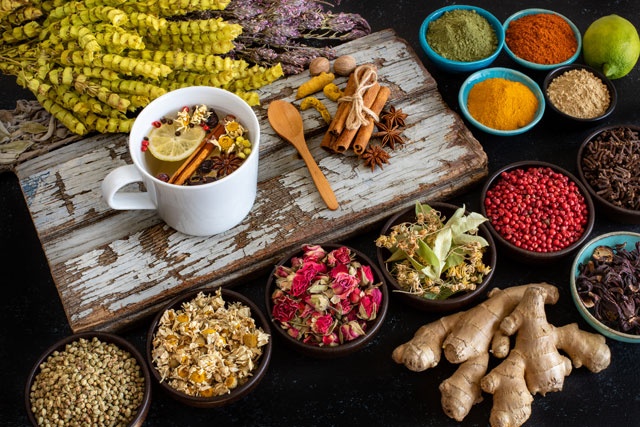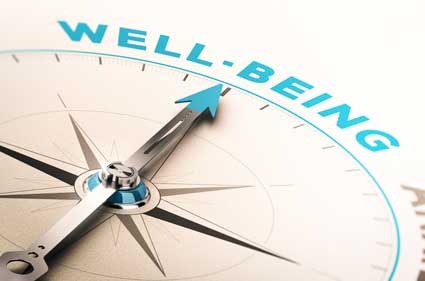The body is made up of over two-thirds water, and our brains contain nearly 85% water. Water is essential in the creation of cells, tissues, and body organs. Life depends on water to carry nutrients and regulate our body temperature. However, the aesthetic value of water helps to maintain healthy and youthful looking skin and prevents a multitude of conditions and diseases.
Look at it this way. What happens when all the fluid evaporates from a grape or a plum? You get raisins and prunes and lots of wrinkles. Dermatologists understand that the skin contains 10 to 20% water, and if the skin loses moisture, it naturally becomes flaky and dry. Lines become more pronounced and dry skin ages more quickly.
Many of us spend hundreds if not thousands of dollars over our lifetime on fancy and expensive moisturizers, but many people discover that they need more moisturizers to do the same job as we grow older. Oil and sweat glands begin to slow production by the time we hit our 30s, and as women edge closer to menopause, estrogen levels drop and skin dries out even more.
However, water in life is an essential, and free, moisturizer. It doesn't matter if you drink it or bathe in it - water moisturizes our skin. However, dermatologists warn us against soaking in hot bath water or using hot water on our faces because it tends to dry out our skin.
Water is also essential to lubricate our internal organs and tissues. Without water, we experience headaches, weariness, and lethargy. A hydrated body stays young and healthy and helps maintain energy levels and mental alertness.
Adequate hydration on a daily basis may also even help to prevent colon cancers. At least five glasses of water a day are essential to maintain adequate levels of hydration in the colon as well as in the blood system.
So let's just take a few moments to cover the most basic vitamins and minerals that are necessary and well-known for their antiaging and health benefits.
Bioflavonoids - These are plant pigments give flowers and fruits some of their colors. Often, they are known as antioxidants. Bioflavonoids are known to lower the risk of heart disease and the amount of low-density lipoprotein, or LDL cholesterol, (the bad kind), from clogging arteries. Bioflavonoids enhance the absorption of vitamin C. Found in apples, red and yellow onions, and tea, bioflavonoids have been known to reduce risks of cancer and tumor growth.
Vitamin A - Vitamin A helps to maintain healthy skin cells as well as eyesight.
Vitamin B6 � This vitamin is essential for the creation and production of red blood cells. Vitamin B6 also helps to maintain your immune system and produce insulin.
Vitamin C - This is one of the best-known and natural forms of antioxidant that can be found in citrus fruits, strawberries, kiwi fruit, and other fruits and vegetables. Vitamin C helps prevent cataracts and maintain bone health. Vitamin C has also been known to reduce the risks of high blood pressure and cancer and heart disease.
Vitamin D - Helps to form strong bones. Vitamin D is also essential in breaking down and transporting calcium and phosphorus to the blood. That's why it is essential that people taking multivitamin supplements also take calcium to balance each other out. Otherwise, you're defeating the purpose.
Vitamin E - Another antioxidant, vitamin E is found in a variety of seeds, nuts, and vegetable oils. Research has suggested that the antioxidant benefits of vitamin E may help to boost the immune system and prevent heart disease and many cancers. Recent studies at the Columbia University have learned that vitamin E may also play a role in slowing the progression of Alzheimer's disease and also helps to slow down mental deterioration.
Folic acid - Also known as a Folate, folic acid helps the body to create and produce RNA and DNA, our genetic codes for cell reproduction. It is vital in the formation of hemoglobin, which carries oxygen in red blood cells.
Important minerals found in our body include but are not limited to chromium, copper, iron, magnesium, selenium, and zinc. Other supplements that are known to show increased benefits in antiaging techniques include but are not limited to:
-
Flax seed oil
-
Melatonin
-
Ginkgo
Flax seed oil is a polyunsaturated vegetable oil rich in omega-3 fatty acids, which have been known to lower blood levels of cholesterol, triglycerides, as well as reducing the risks of strokes or heart attacks. Omega 3's increase the level of high-density lipoproteins, or HDL's, which are known as the "good" cholesterol that helps to remove bad cholesterol from the blood. Fish and fish oils are the most common sources of omega-3, but flax seed oil contains double the amount of omega-3 found in fish oils. Flax seed oil has also been known to help prevent breast cancer and breast tumors.
Melatonin is a hormone that is secreted by the pineal gland found in the brain. Though about the size of a pea, this gland regulates and controls our sleep patterns, among many other vital body functions. Also an antioxidant, it is known to protect against age prone diseases such as cancers and cardiovascular disease. However, as one of the most powerful antioxidants known to man, it also helps to fight free radical (build-up of 'bad stuff') damage in brain cells, and helps to prevent dementia and Alzheimer's. Synthetic forms of melatonin should be taken prior to bed time, as it will promote drowsiness.
Ginkgo is a natural herb that has been used throughout Europe and Asia to help increase brain functions and blood circulation. However, before taking any natural herb or herb products, consult with your doctor to determine side effects or contraindications for use with other medications including aspirin, blood thinners, and other prescription drugs.
The vitamins and minerals listed above are just the tip of the iceberg. Vitamins and minerals found in fruits and vegetables, eaten on a daily basis are one of the most important and simple ways to fight the aging processes. Unfortunately, our fast food mentality has created an entire generation of individuals who don't even like vegetables in any form.
Beliefs about Aging
Average age expectancy in the United States is between 80 and 85 years old. However, due to the wide range of preventative medical techniques, don't be surprised if we find that the baby boomer and newer generations may live into their 90s. However, it is true that genetics and family heritage does have a certain impact on our life expectancy. Family conditions such as inherited genetic diseases and diabetes, heart disease, cancer and hypertension may decrease our life expectancy by a number of years.
It is also generally understood and accepted that individuals who achieve a greater family income generally live longer than those who don't, which may be because of the ability to afford medical care, or because such individuals aren't required to engage in excessive physical labor on a daily basis. Highly educated individuals are also expected to live longer than those who are uneducated, which may tie in to the career fields that he or she may enter.
Calm individuals have a greater life expectancy than those who are easily annoyed or angered. Those who live in large, polluted, industrial cities or centers or high crime areas may not live as long as those who live in rural or farm communities or in suburbs that enjoy lower crime rates.
For this reason, more men and women are hitting the gym to lift weights than ever before. This doesn't mean pumping weight bars until we look like Arnold Schwarzenegger. It means weight-bearing exercises using 3, 5, 8 and 10-pound dumbbells to work all major muscle groups on a regular basis.
We're all very well aware that those sags and bulges start to appear by the time we hit our mid-30s, and that we may lose 1/4 to 1/3 pounds of muscle every year, to be replaced with fat because our metabolism slows and we typically engage in less active lifestyles. However, we can fight this muscle loss, and the sagging and the bulging by regularly engaging in weightlifting, two to three times a week.
Weight-bearing exercises are also essential in helping to prevent degenerative bone disease and loss and conditions such as arthritis and osteoporosis. You're never too old to start lifting weights. Even older women in their 70s and 80s who start lifting weights on a regular basis increase their strength and lean muscle mass and enjoy greater health benefits, stability, and balance.
Small workouts at home or in the gym two to three times a week will increase energy, mental acuity, and encourage quite dramatic, bodily changes in four to six weeks. Some women who engage in regular weight-bearing exercises two to three times a week enjoy antiaging benefits that are gained from strength training. Such benefits include a thinner physique, increased strength, improved moods, better balance, energy, and added bone mass.
Yoga and Pilates are excellent exercises to help maintain muscle tone and exercise smaller muscle groups throughout the body. Many individuals fighting sagging eyelids and chin lines regularly engage in yoga facial exercises to help maintain a youthful, firm looking face.
Individuals are just as inclined to forget where they left their keys at 25 years old as they are at 70 years old. That doesn't mean that our brains are deteriorating or that we're going to get Alzheimer's when we grow older. It just means that were distracted and pressed for time.
The brain behaves much like a muscle in that it needs exercise and activity to maintain optimal function. If we continually challenge and encourage the brain to learn more on a consistent basis, it will grow stronger and more capable of retaining information.
Keep the brain active and mentally challenged by engaging in mental tasks that continually push us to expand and explore new things, ideas, and limitations. Learn to play a new instrument. Take up a new language. Try doing more mathematics in your head instead of immediately reaching for a calculator.
To keep things really lively, try using your opposite hand for a few minutes every day. If you're right-handed, use your left hand to write, dial a telephone, open doors, and weed your garden. Not only in this challenging to the brain, it provides some entertainment as well, which releases those also valuable endorphins in the brain.
Our brains do not reduce in their capacity to function as we grow older, although we will experience some slowed processing stages of gathering such information. For example, a complex set of instructions may take them a few moments longer to initiate when we are 80 than when we are 30 years old, but we'll get to the same conclusion sooner or later.
In order to maintain brain function as we age, eat plenty of vegetables and fruits that contain vitamin C and E. Eat plenty of foods rich in antioxidants, such as strawberries and spinach. Keep active, and consistently challenge your body and mind to stay fresh and invigorated.
A recent Gallup poll discovered that 80% of 750 women between the ages of 45 and 60 surveyed expressed a sense of relief upon entering menopause. For many women in the 21st century, menopause brings with it desirable changes, challenges, and attitudes that reflect an increased sense of freedom and independence. While many women do go through some of the more unpleasant aspects of menopause, including hot flashes and night sweats, more often than not, such symptoms don't cause a huge disruption in a woman's daily life.


























